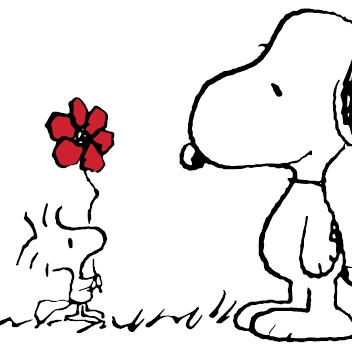- cross-posted to:
- europe@feddit.org
- cross-posted to:
- europe@feddit.org
Where Germany?
We’ve read all the books already because we’re so efficient.
Germans value privacy to a degree that seems extreme to others. Google maps had a really hard time getting started there, for example. And cash is still widely used because it cannot be traced like card transactions.
This has nothing to do with privacy. Street polls do very much exist in Germany.
Just because it may seem extreme to others doesn’t mean we’re wrong though! And also doesn’t mean it should be that much harder to gather data like this.
Agreed. Personal privacy is important, everyone should be able to decide for themselves what they want to have public/private.
Below Romania? 😅
No data available.
Germany doesn’t exist.
Well, shit. Where the fuck have I been living all this time?
In Nürnberg
*Belgium doesn’t exist
The figure published by Eurostat:

the color coding for the amount of books is the wrong way around. The classification with the lowest percentage should also come first on the x-axis. Right now you have to mentally subtract to get the percentages for people that read 10 books.
I’m calling BS on those numbers.
Idk where Eurostat gets It’s info from but I assume that if you go on the street and ask people about reading books, they’ll lie.
70% reading several books, as in from start to finish, not just “read a few pages”, in the past 12 months?
Either it’s bullshit or the sampling is super biased. I’d believe those numbers of certain parts of the population, but in total? Nah.
I’d like to see how the data would’ve been affected if the interviewers had also tested that the people know what books they read and roughly what happened in them.
Pretty sure they count audiobooks and comics in
Oh well then, yeah, I can see that.
Good point
All right then, Germany, keep your secrets.
62% in France only. I don’t believe it. They must have only counted novel, excluding comics or something.
I guess, I have to stop trusting my anecdotal experience and relie more on data :)
@pseudo me too but they don’t explain how
Those are sad numbers. Should be 100%.
For those of us who don’t read, what do you feel that we’re missing out on?
A whole vector for receiving new ideas, perspectives, expression, experiences.
Some stories can’t easily be translated to another medium. House of Leaves, for example, is very much a Book, and trying to translate it to some other medium would result in a very different item.
It also helps improve communication skills in general. You’ll see a variety of ways to put sentences and ideas together, and you can use that yourself. A lot of marketing and blog posts are targeting a 6th grade reading level. Authors there aren’t typically aiming for complexity or richness of prose.
Ah, I remember House of Leaves. I can’t say I was particularly into the story itself, but it was an interesting experience. Very immersive book.
On the topic of complexity / richness of prose, is the value of that mainly artistic? I’ve always aimed to make my writing as simple and concise as possible to aid in communication. Complexity and richness seem to go against this goal.
Even if the value was only “artistic”, I think that is valuable. I don’t especially want to live in a world void of art.
But while concise and simple language has its place, being able to express and understand more complex constructions seems valuable. Do you want to live in a world where no one expresses themselves with more depth than “See spot. See spot run.”? The world is complex and being able to communicate in different ways seems valuable. Hitting a clever sentence can be an inspiration for thinking more.
By contrast, look at 1984 and the dystopian collapsing of language. As words are removed and grammatical structures lost, it becomes harder to express some ideas.
Ironically, I don’t think I’m going a great job communicating my point. Let me try again. Simplicity and sparseness have value in some places, like instruction manuals, but richer language is worthwhile in many other contexts.
Different worldviews, new ways to reason about existing issues, raised awareness of other problems, cultures, people. And straight out more knowledge about many things (even if you read only fiction). Overall, you can move forward from a perhaps more simplistic version of the world.
Also, just the increased ability to read and understand stuff should not be underestimated. Many people can read, as in putting letters together to form words, but not read in the sense of understanding anything beyond the most basic of sentences. You’ll get scammed less often. get better deals, etc.
Overall, you can move forward from a perhaps more simplistic version of the world.
This feels very elitist, like you have a better and deeper understanding of the world just because you read books. I can tell you that it’s not that simple
It is not simple, but honestly in this day and age of extremely swiftly-consumed content that is often made to be as concise as possible, books bring a deeper, more long-form perspective on many things where other media can’t (or at least very rarely) do the same.
But of course it also depends what books you’re reading or what other media you’re consuming. TikTok vs books is probably clear cut but what about like educational YouTube or something? Not as simple.
even if you read only fiction
Isn’t this post specifically about fiction? When we say that a person “reads”, it normally means fiction. Plus, I don’t think anything else is typically measured in number of books.
I guess what I mean to ask is: what we can gain from reading works of fiction over other forms of text? Would you give the same answer given the clarification?
Isn’t this post specifically about fiction? When we say that a person “reads”, it normally means fiction.
I don’t see anything suggesting this is fiction only and I definitely don’t think “reads” means “reads fiction”.
What else do you read that can be measured in number of books? You wouldn’t do that for news articles, blog posts, or scientific papers. Cookbooks, textbooks and dictionaries are books, but you rarely read those from cover to cover, so you wouldn’t see people talking about the number of books they’ve read in that context.
Did you forget that non-fiction exists as a genre? Biographies and memoirs are very popular, for example.
Ah, right. Sorry about that. I’m just thinking through all the things I’ve read in the recent months and looking through my bookshelf. Seems our reading habits here are rather narrow.
I can’t tell if you’re trolling or if you just haven’t visited a library or bookstore in a while, but non-fiction books come to mind?
Sorry, I’m dumb. I do go to libraries quite often, but if I’m looking at the books, it’s to find something specific. I never browse the shelves.
What else do you read that can be measured in number of books?
Non fiction obviously? You know, books about the world and stuff. Recently I read Homo Deus by Yuval Noah Harrari for instance. That is not fiction and it is a book.
On one hand I get your point, but on another if you spend most of your time learning (but through other formats than books: through quality online articles or videos, and not eBooks) then it does not seem so bad to me.
I am reading nearly 24/7 but I complete a full actual book maybe once a year. Might be bigger if you count the books that have also (legally) been wholly posted online, but I often forget them because I read them just like an extra-long article: on my phone. I read peoples’ original fiction that they post online so I’m not sure whether to count it or not.
I like longer articles but I do admit that I consume so much less long-form content than I did as a child. At least I avoid TikTok and Reels and the like? (Not to be elitist, but because I know I specifically would get addicted and waste my life. Very bad for my particular ADHD brain.) Also something something possible link between lower attention spans and only consuming short-form content. So I get the general gist of your idea and agree even if I do not particularly agree with the emphasis on the medium of books.
You make a valid point. So long as a person is reading regularly, and not just social media posts, I’m satisfied in this regard.
A “0 books” category would make this a lot more telling, unless “Less than 5” explicitly means 1-4
i thought its a 100% scale and the missing part on the right represents 0?
but this stat is also missing germany and uk for no reason so its weird to begin with, who knows really
but this stat is also missing germany and uk for no reason so its weird to begin with, who knows really
OP should have posted the original source, but there’s another comment with the actual Eurostat graph and it’s for the EU. It says Germany had no data available and UK is left out because it is not in the EU.
oh, of course. Should have read the title of the graph :/
The 0 books category is the empty space in the right side of the graph. The graph is about the percentage of people that read at least a book and then the colours say the different amount of books. Like if from 100 people 1 person read 12 books they would still count as only 1%. Their 1% would have a different colour tho. The people reading 0 books don’t count towards the percentage of people having read a book.
deleted by creator
While with the internet at arm’s reach I may not read books as I did before, not even in the past twelve months, I am using that same “mental quality time” to view long videos explaining concepts in relativity and quantum physics, the history of science and of art, ancient cultures and civilizations, the origins of the languages we speak today, how Cuneiform was used in the Bronze Age…
The scope of information - and quality presentation of said information - at our disposal today is mind-boggling, nothing short of astonishing when you start scratching even just YouTube.
I do both. I’ve recently picked up reading before bed as a healthy habit and I’ve been slowly working through the Discworld series at about 1 book every month or two. It’s nice to not stare at a screen for a bit, although I do generally skip nights where I’ve stayed up too late staring at screens
Pbs spacetime is absolutely fantastic if you truly want to dive into the physics hole without too much of the math
I always thought these studies would show an inverse relationship to how good the country’s weather is. The colder it is outside, the more likely you’d be to stay inside and learn. But not sure that totally lines up here….
i mean there are quite a few cold ones above and summer destinations below. there might be something there.
Romania: Does the Bible count?
Even if it does, do they actually read it?
What books are they reading?
Iceland is missing. I would expect it to score high on that chart.
IMHO books are the point of view of the writer and is just that, a book. So I prefer get the information from actual people by talking and from all kind of sources.
Am I a joke to you?- fiction
*Reading habits in the European Union.
Last I checked the UK was still part of Europe!
Can’t really be for the EU, either, as it includes Norway and excludes Germany. Not exactly what I’d call beautiful data.
Weird it has an EU average. That’s what threw me.
Now I’m even more annoyed at this graph.
This graph comes from Eurostat. It’s funded by the EU, but all European countries can participate. That’s why Norway and Switzerland are in the graph, even though they are out of the EU.
The UK just doesn’t care being European, apparently.










